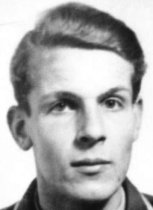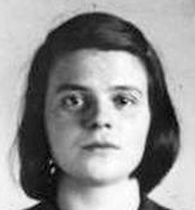Forejustice
On February 22, 1943 Sophie Scholl, her brother Hans, and Christoph Probst were found guilty of treason against Germany. The three were beheaded the same day. They were condemned as traitors for producing and distributing leaflets titled -
The White Rose movement was intended to trigger an awakening by the German people to their ability to positively influence society to become more humane. Their rallying cry was “Freedom and Honor!” The White Rose advocated that German’s proactively work towards creating such a society by rising up and refusing to passively go along with the government that was staining the good name of the German people. For daring to suggest that German’s act on their conscience instead of mindlessly following the government’s directives, the people of The White Rose were targeted by the German government to be ruthlessly hunted down, In addition to the Scholls and Christoph Probst, Alexander Schmorell, Willi Graf, Professor Kurt Huber and Hans Leipelt were executed.
Whether explicitly or intuitively, The White Rose participants recognized that the means used to achieve their desire to live in a society in which women, men and children were respectfully treated and did not exist to be the tools of the government needed to be consistent with that end. The men and women of The White Rose did not engage in violence. Rather, they pursued their dream and conveyed their message by distributing leaflets that expressed truths otherwise unavailable to be read by the German people. In the midst of war torn Germany they dared to go beyond exercising freedom of thought by exercising freedom of association, speech and the press: for which some of them paid with their lives. Click on The White Rose to go to a webpage about these courageous people.
The power of The White Rose was proven only days after the execution of Hans and Sophie Scholl and Christoph Probst, and it showed that the political authorities in Germany indeed had much to fear from an elevation in the consciousness of the German people. Beginning on February 27, 1943, German non-
It is in the spirit of the heroes of The White Rose and The Rosenstrasse Protest that the word forejustice was created to express action that moves towards an increase in the justice prevalent in a society. Proactively expressing one’s insistence on justice creates a positive bubble that displaces a like amount of tolerance for misjustices that would otherwise occupy that space in time, consciousness and reality. Envisioning that an increase in the justice in society is possible is the first step to proactively expressing that belief through the means of positive action consistent with achieving that end.
Hans Sherrer
2002
Forejustice Copyright 2002-



Sophie Scholl
(1921-
Christoph Probst
(1919-
Hans Scholl
(1918-